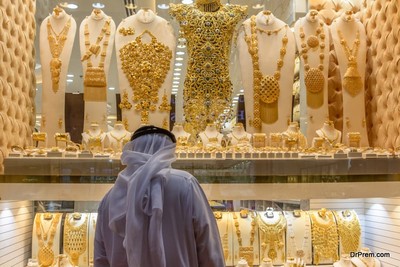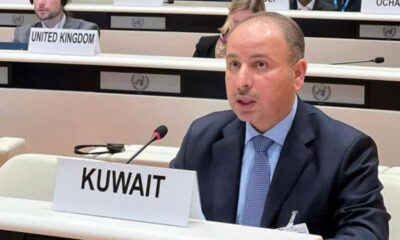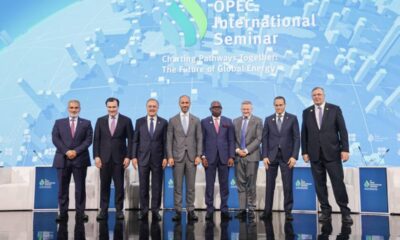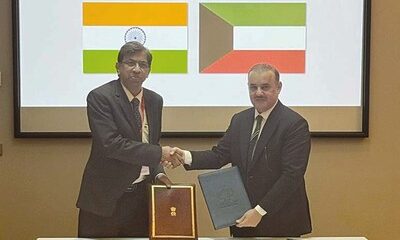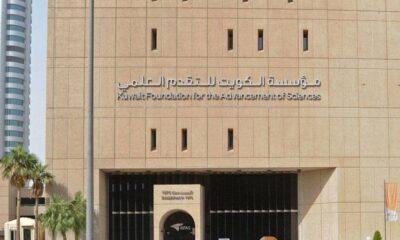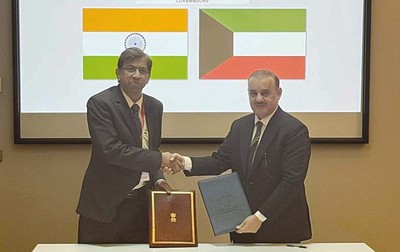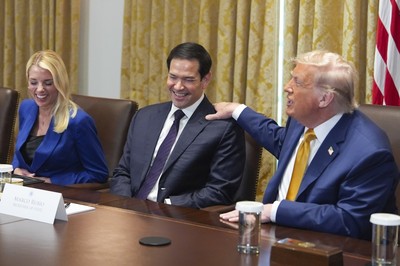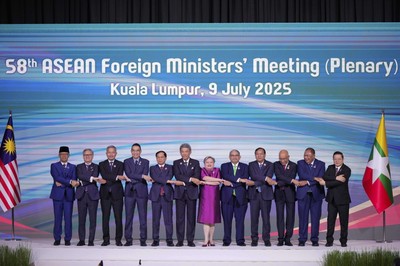From left to right, Indonesia’s Foreign Minister Sugiono, Lao Minister for Foreign Affairs Thongsavanh Phomvihane, Singapore’s Foreign Minister Vivian Balakrishnan, Thailand’s Foreign Minister Maris Sangiampongsa, Vietnam’s Foreign Minister Bui Thanh Son, Malaysia’s Foreign Affairs Minister Mohamad Hasan, Philippine Foreign Secretary Theresa Lazaro, Brunei’s Minister of Foreign Affairs Erywan Yusof, Cambodia’s Foreign Minister Prak Sokhonn, Myanmar Ministry of Foreign Affairs representative Kyaw Nyun Oo, East Timor Foreign Minister Bendito dos Santos Freitas and ASEAN’s Secretary-General Kao Kim Hourn pose for a group photo during a plenary session of the Association of Southeast Asian Nations (ASEAN) Foreign Ministers’ meeting at the Convention Centre in Kuala Lumpur Malaysia on July 9. (AP)
KUALA LUMPUR, Malaysia, July 9, (AP): Malaysian Prime Minister Anwar Ibrahim warned Wednesday that global trade is being weaponized as Southeast Asia’s foreign ministers opened an annual meeting while facing the looming threat of U.S. trade tariffs. The threat of US tariffs has jolted the Association of Southeast Asian Nations, a 10-member bloc that includes some of the world’s most trade-dependent economies.
Six ASEAN members are among the 14 countries that could see duties on their exports to the US skyrocket on Aug 1. Launching the Association of Southeast Asian Nations foreign ministers’ meeting, Anwar said the world is now witnessing an era where “power unsettles principle” and “tools once used to generate growth are now wielded to pressure, isolate and contain.”
Without mentioning the US by name, he again urged ASEAN to work together to respond to trade threats. “Our cohesion must not end at declarations,” he said, calling for members to increase intra-ASEAN trade, invest in regional integration, and reduce strategic dependencies on external powers. “This is no passing storm,” he said. “It is the new weather of our time.”
Trump first announced tariffs in April, but then delayed them for 90 days to allow for deals. On Tuesday, he announced new tariff with rates of between 25%-40% on 14 countries, which will go into effect Aug. 1 unless new deals are struck. He also threatened to increase tariffs if any countries retaliate. Many ASEAN members have launched bilateral talks with the U.S., but officials have said they plan to hold an ASEAN-U.S. summit later this year to seek a common position.
So far, only Vietnam has secured a deal, bringing down its tariffs from 46% to 20%. The list threatens 36% tariffs for Thailand and Cambodia, 32% for Indonesia, 25% for Malaysia, and 40% for Laos and war-torn Myanmar. In addition to confronting trade fallout, the bloc faces mounting internal challenges. The ongoing civil war in Myanmar and a border dispute between Thailand and Cambodia are also on the agenda.
The gathering in Malaysia will be immediately followed by a series of critical meetings with ASEAN’s major trade partners, including the United States, China, Japan, Russia, India, and the European Union, scheduled for Thursday and Friday. U.S. Secretary of State Marco Rubio, who last week cancelled trips to Japan and South Korea, will arrive Thursday for the talks on his first visit to Asia. Others visiting foreign ministers include China’s Wang Yi and Sergei Lavrov of Russia. Analysts said these talks will test ASEAN’s ability to assert its voice amid escalating geopolitical tensions.
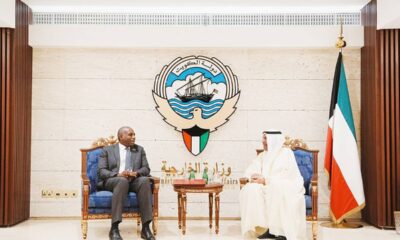
 Latest News4 hours ago
Latest News4 hours ago
 Politics10 hours ago
Politics10 hours ago
 Politics23 hours ago
Politics23 hours ago
 Politics21 hours ago
Politics21 hours ago
 Latest News13 hours ago
Latest News13 hours ago
 Latest News8 hours ago
Latest News8 hours ago
 Politics14 hours ago
Politics14 hours ago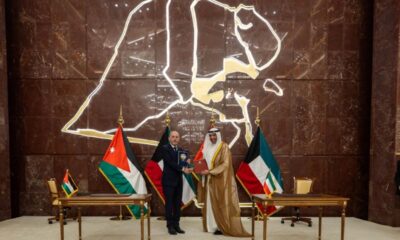
 Latest News12 hours ago
Latest News12 hours ago
